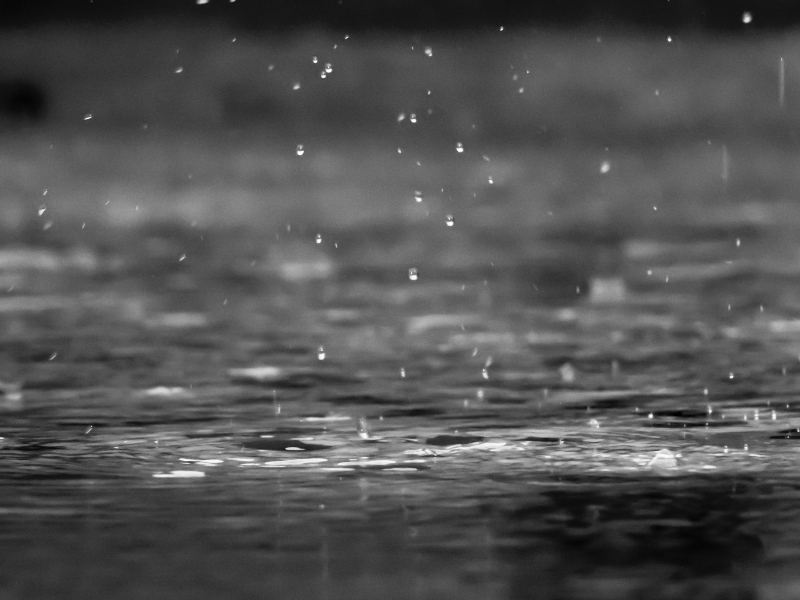Even if you’re an expert planner, weather can change on a dime. Conditions can start nice but deteriorate quickly, making your wilderness excursion a nightmare. Knowing how to act in these situations can help you get home safe. With that in mind, here’s a guide on surviving extreme weather events in the wild.
How Can You Manage Extreme Weather in the Wild?
An extreme weather event can be dire, but you can survive if you’re knowledgeable. So, what should you do in these kinds of scenarios?
1. Find Shelter
If you’re in a remote area, your first task should be to find shelter. Extreme weather could include scorching temperatures, powerful wind gusts or overwhelming blizzards, so you’ll need to protect your body from the elements.
You may be able to locate a natural shelter — such as a cave or overhanging rocks — to provide temporary relief. Large trees are helpful but can be a liability if lightning strikes.
Otherwise, you’ll need to construct your shelter if escape isn’t an option. Find sturdy materials like branches and logs for the base, and use leaves and moss for insulation. Minimize the gaps and openings in your shelter to prevent cold air and precipitation from entering.
2. Build a Fire
Your next priority should be building a fire. While important in any condition, campfires are even more crucial in cold and wet weather. You risk hypothermia in cold temperatures and rain, so you need to keep your body above 95˚ Fahrenheit to avoid it.
Building a fire in the wilderness is more manageable with suitable tools. A tinder box, matches and flint make the job easy if you can find dry land to start a flame. However, if you don’t have them, find dry leaves, twigs, branches and similar fire-making materials.
3. Employ Navigational Skills
If you need to escape, your navigational skills will be crucial to staying safe. A global positioning system is handy for times like these because it can provide your coordinates and track your route.
However, if you don’t have one available, landmarks, stars and weather patterns can help guide you.

4. Rely on Emergency Supplies
When extreme weather arrives, you’ll need to use your emergency supplies as efficiently as possible because you may only get a few chances. For instance, your flare gun may only have one shot. Use every tool in your arsenal for communication and survival purposes, which may include:
– Whistle
– Headlamp
– Emergency blanket
– Iodine tablets
– First-aid kit
5. Maintain Calm
Surviving harsh conditions requires mental resilience as much as your physical actions. Panic and desperation will worsen the situation, so remaining calm should be your focus as much as possible.
Health experts say anxiety can make you feel tired, so find ways to ease your mind despite what’s happening around you. Stress-reducing activities include deep breathing, positive thoughts and relaxing stretches. Reframe the extreme weather as a test of your resilience and you’ll feel accomplished once you brave the storm.
How Can You Prepare for Extreme Weather?
Battling the elements is tough to simulate at home, so enduring conditions is the best way to test yourself. However, you can still prepare for extreme weather in the wilderness. Here are three strategies to increase your chances of survival before you head out the door.

1. Maintain Your Gear
Foul-weather gear is crucial for outdoor survival because it protects your body from moisture and other elements. Drysuits, jackets, and trainers are only some of the gear you need if you’re in and around the water. However, you must maintain this clothing for it to remain effective on every trip. Caring for your foul-weather gear extends its life span and enhances your safety, so take time after each excursion to remove salt, grime and other contaminants.
Additionally, you’ll want to inspect any vehicles or metal tools you’ve used for moisture. Rust is a significant concern because it may form in places you can’t see easily, such as the undercarriage. Removing moisture and salt should be your prevention strategy, but it could arise anyway. Some quick ways to remove rust include WD40 and citric acid, among other home remedies.
2. Anticipate the Weather
The weather can turn extreme without much warning, but watching the forecast before you head out is crucial. Modern meteorologists have a high degree of accuracy when making their predictions, so you’ll have a pretty good idea of what to expect. When you know the upcoming conditions, you can prepare better.
For instance, thunderstorms mean you should bring a tarp, water-resistant clothing and other rain gear. These supplies will make enduring the conditions more manageable and lower the risks of getting sick.
3. Leverage Technology
Some survivalists pride themselves on using minimal or no technology outdoors. While primitive camping and hunting are admirable, electronics can be valuable, life-saving devices during extreme weather. Remote areas might not be conducive for cell phone usage, so you’ll need reliable tech that works anywhere you go.
For example, weather radios are helpful when you’re miles away from civilization. These gadgets have antennas that gain reception up to 300 miles and are inexpensive, considering their effectiveness.
With a weather radio, you’ll receive updates from the National Weather Service when an extreme event is coming. Knowing the impending weather will give you time to prepare and implement your emergency plan.

Taking on Extreme Weather in the Wild
Extreme weather isn’t what you signed up for on your camping or hunting trip, but it’s a realistic scenario you must prepare for. Preparing for these events and knowing what to do in them will go a long way.
=====
Become a Survival Dispatch Insider …
We bring together survival enthusiasts and preppers to share skills and knowledge, so you can enhance your preparedness for emergencies and ensure the safety of you and your community.
The Results You’ll Get …
Our community, courses, and memberships are pretty special. We focus on the ways it will make a huge difference in your life.
Here are a few of the things you’ll be able to do as a member of Survival Dispatch Insider …
1) Improve your emergency preparedness by learning survival skills and strategies from experienced preppers.
2) Build lasting connections with like-minded individuals that share your passion for safety and readiness.
3) Access a wealth of knowledge and resources to assist in protecting you and your community during unexpected situations.
Click HERE to get started.
=====
